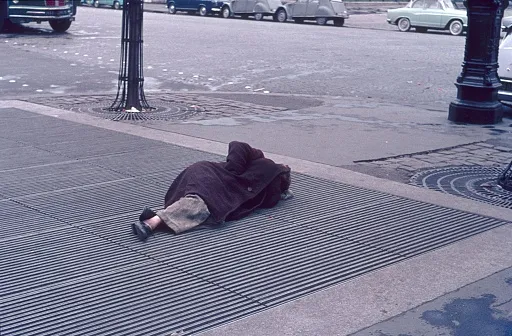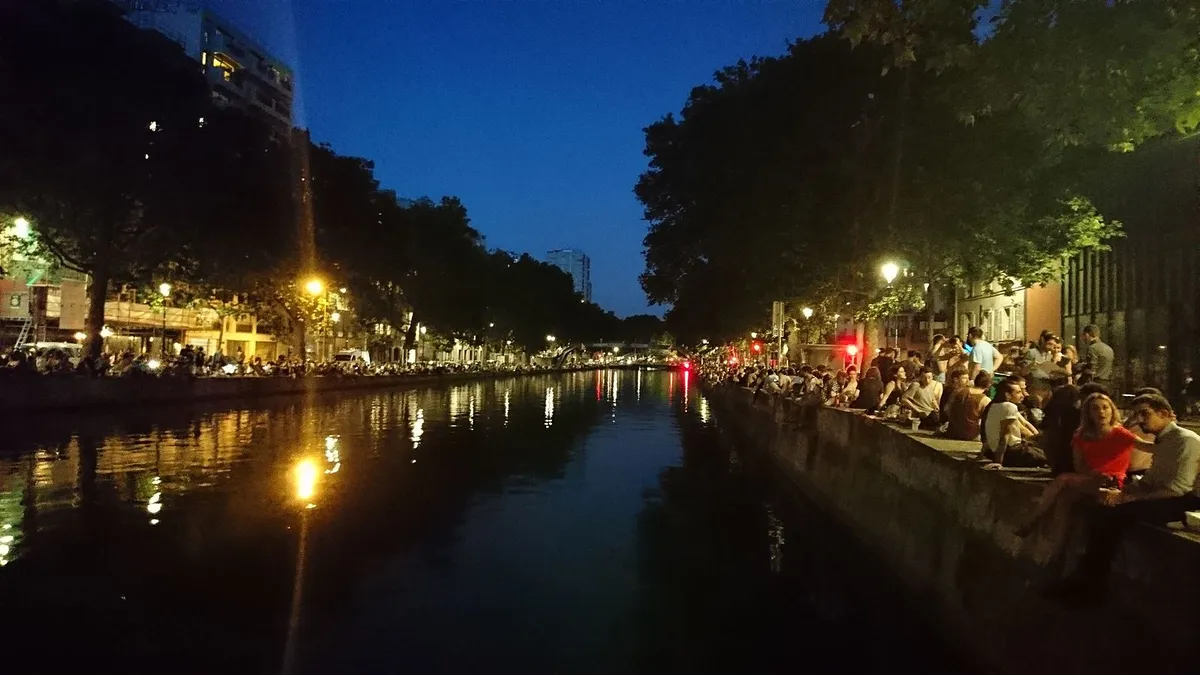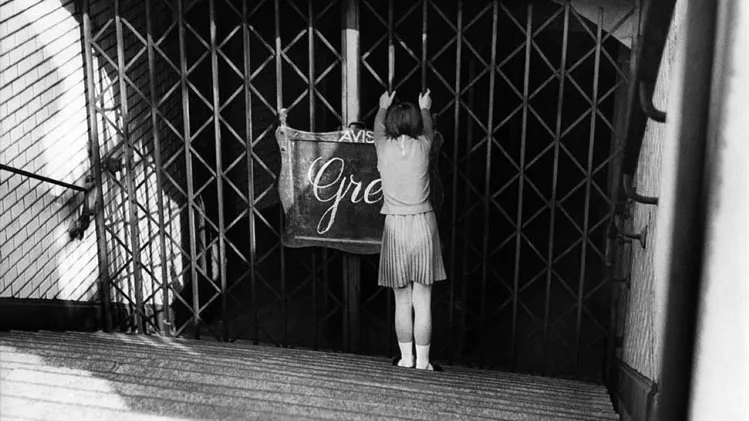About The Metro Smell
In The Times, the novelist Katie Kitamura writes about the transporting power (pun intended) of the smell of the Paris metro as it emanates up to the street through grates in the sidewalk.
As is occasionally the case when the anglophone press (and above all, The Times) turns its attention to Paris' b-sides, hidden gems, and Subjective Experiences, I felt a pang of recognition, that strange cocktail of camaraderie and co-opting that comes with accounts of niche epiphenomena. Hey! I'm not the only one with this super evocative time-machine relationship to that one very specific smell! But wait... you think it means what?
In a sense, personal essays like Kitamura's are doomed. When they diverge from what seems to me, the discerning reader, to be the just heart of the matter, I'm understandably disappointed. But if they ever managed to perfectly encapsulate in words the feel of that ghostly memory, as elusive as the invisible wafts of smell she describes, I'd say that someone had raided some inner sanctum of my experience, barely available even to me, and auctioned off the bounty for her own profit.
 Tfw you discover someone else is writing about YOUR special scents in the NYT.
Tfw you discover someone else is writing about YOUR special scents in the NYT.
The problem arises, I think, from the fact that she and I share the same thing. I'd have no doubt adored her essay had I never been to Paris. But, having hewn so closely to the same trajectory-an American, first visiting as a student, later returning, older, working here-it's more complicated. As a reader, having a certain distance from the writer's experience is perhaps more than a luxury; it may well be necessary. The bestselling memoir of a dysfunctional family takes on a very different meaning when the reader knows he's one of the main characters.
It seems unavoidable here to mention Proust's famous passage on memory, in which he recounts how the taste of a tea-soaked morsel of madeleine is enough to conjure the whole lost world of his childhood, replete with architectural details and floral arrangements. We speak of each having our own "madeleines" (in English; in French, to my delight, you must specify "madeleine de Proust," or people will just think you are talking about cookies).
Proust's madeleine is immortal only because we give ourselves permission to adapt it to the infinite variations of our lives. As a contemporary reader, I might take some additional pleasure or meaning in connecting my experience of the involuntary memories provoked by the metro's smell to Proust's text, but then, I benefit from quite some distance in reading Swann's Way. I like to imagine an educated, middle-aged Normand cracking open his freshly published edition of Du côté de chez Swann, only to be scandalized by the same passage. Perhaps he is even snacking on gâteaux and sipping something warm as he settles into an afternoon of quiet reading. Coming across Proust's madeleine passage, he nearly spits out his tea. Eating these makes him think of what?
All of this to say, Ms. Kitamura and I were never going to have the same response to that smell she describes, not inaccurately, as "sweet, a touch rubbery and a little industrial." Tant mieux. But since her reflections are in The Times, I hope she won't mind me adding my two centimes.
 Les madeleines industrielles, a hallmark of the French professional conference.
Les madeleines industrielles, a hallmark of the French professional conference.
I've never really associated the metro smell with riding the metro. I suppose it must be present to some degree in the stations as well, but the defining experience, as Kitamura also writes, is that of being gathered up unexpectedly in the swell of an updraft while strolling down the sidewalk.
For me, the pleasure of the smell lies in the reminder that there exists a whole parallel infrastructure, largely invisible, but ready to serve, to enable your participation in this great beating orgy of urban life. Indeed, the scent insists, even right now, as you ramble above, untold thousands of others are being whisked around just below your feet. The metro smell is the sound of the sea swashing about in the conch shell, the ghostly afterimage that appears on the back of your eyelids when you look away from a scene. Or, in Whitman's words: "The certainty of others, the life, love, sight, hearing of others."
And what of actually riding the metro, mingling with the crowd? I think it's interesting that for a young Kitamura, the metro represented the fulfillment of needs, a certain satiation: "those nights riding the train were the first time I understood how a metropolis allows you to be solitary without being lonely... I wanted for nothing... in these moments, all my longings were met."
This impressed me, since riding the train and all the experiences it enabled seemed to impart in me approximately the opposite conclusion, namely, that I had reams of unmet needs of which I was barely conscious! Imagine: 20 years old, in Paris, in Europe, for the first time. Discoveries: elegance as a public good rather than a private indulgence, flânerie, espresso, the promise of reinvention, trains with two-minute headways. Hurtling around underground, my mind raced to wrap itself around the litany of things that would require changing.
In addition to provoking so much soul-searching, another way in which riding the metro stirred the pot was by simply throwing me into contact with so many people. Kitamura emphasizes the solitary experience of blending into the anonymous mass of strangers on the train, but, to a degree that I think would be unimaginable in New York or London, Paris' metro really does allow for a certain amount of genuine interaction with one's fellow passengers. For reasons that demand their own dedicated exploration elsewhere, it's less inconceivable here to find oneself exchanging complicit glances, even bits of real conversation with a total stranger.
One of my first nights in Paris that first summer, when I had traveled with a university group, I got free from my classmates to go off exploring. Someone had let me know, vaguely, that "the canal" was a good place to go, so I consulted Google Maps and headed to the 10th district. Sure enough, the canal was le place to be.
 The Paris commons, courtesy of Wikimedia Commons.
The Paris commons, courtesy of Wikimedia Commons.
I had barely arrived, wandering down the quais, wondering how I might break through the invisible barrier that kept me from joining all these happy revelers. Then, a man on a bench beckoned me over.
"Hé, toi, tu vois là... ah, you speak inglish? Ok. You see that girl over there? She is my friend, go tell her to come over here, I have something to say."
This seemed in hindsight like a strange request, but I was happy to have anything to do, and any reason to approach someone. I went over to the woman indicated and began to fulfill my mission. She listened to me, wearing a generous expression, but seemed confused when I gestured behind me at her friend. Turning around to pinpoint the master of my mission, I understood. The bench was vacant; my guardian angel had disappeared.
My impossible-to-fake embarrassment led naturally to introductions and an invitation to join them, and I spent the rest of the evening chatting with her and her friends along the canal. Ambitious plans were discussed: dancing, bars, une nuit blanche. I couldn't believe my luck.
But then, as will happen, the clock approached midnight, and with it, the realization that I'd soon need to leave to catch the last metro. I exchanged numbers with my new friends (nothing came of it) and jogged over to République.
The stinging disappointment of the night's premature end was tempered somewhat by a surprise conversation with a couple sitting across from me on the train. They seemed to me so peaceful as they returned home together from a night out. I asked the lady to repeat herself every time she addressed me, but she did, and nodded encouragingly at my responses. The metro taketh away, and the metro giveth. And always, the metro smells.
 Real life is on the métro.
Real life is on the métro.